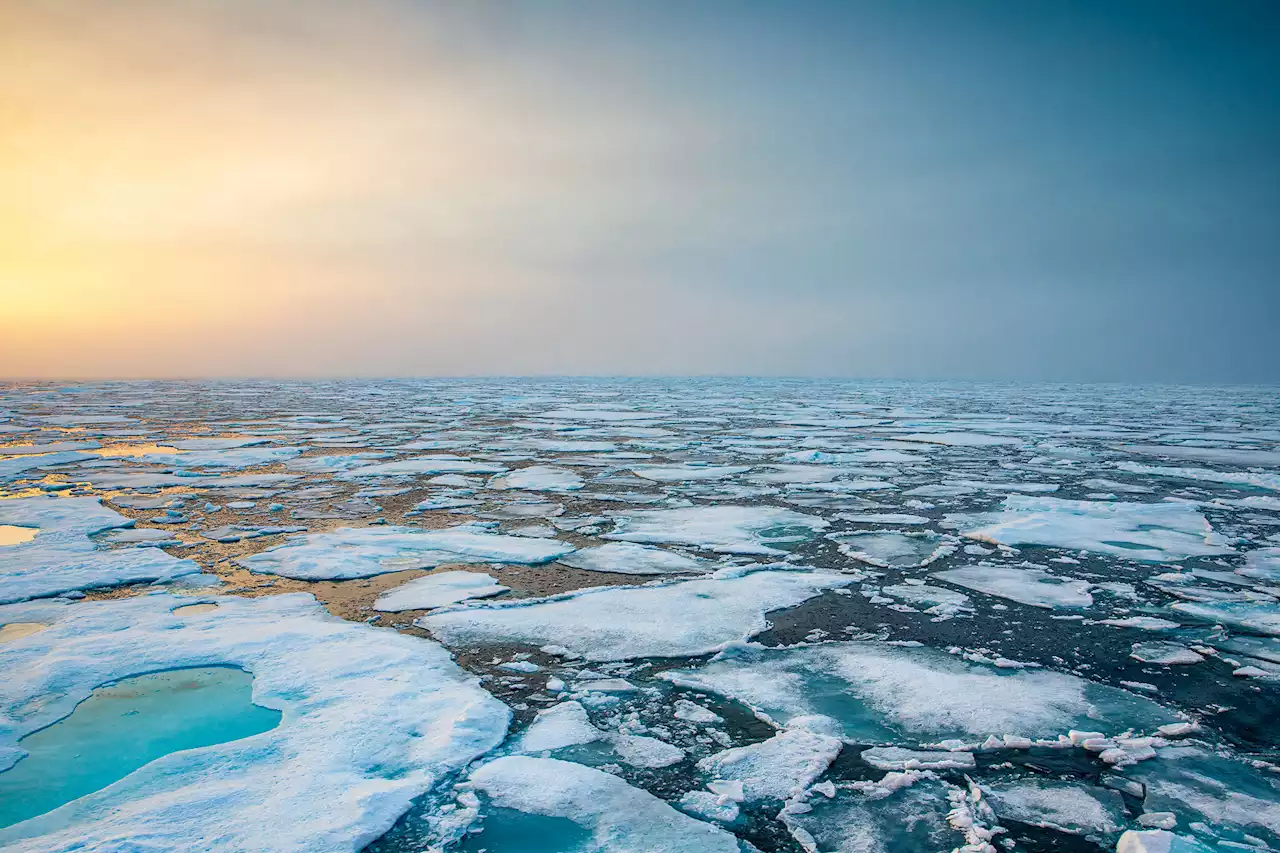Researchers have linked extreme cold events in southern China to Arctic autumn sea-ice extent using paleoclimate data from 1289-2017, discovering a strengthening relationship since the 1980s. A joint research team led by Prof. Cunde Xiao from Beijing Normal University, Dr. Zhiheng Du, and Dr. Jia
Arctic sea ice extent on September 18, 2022. The line represents the 1981-2010 median. A joint research team from Beijing Normal University and the Northwest Institute of Eco-Environment and Resources has discovered a connection between extreme cold events in southern China and Arctic autumn sea-ice extent.
However, the sea-ice extent exhibits considerable annual variability and there is no clear understanding of the relationship between the long-term sea-ice variability and extreme cold events in China’s history. They also compared the records selected for the study with climate records of the historical Chinese dynasties and other relevant references. Meanwhile, modern-day reanalysis data were used to estimate the extreme cold events from 1872 to 2017.
“As we have seen this spring, weather events such as dust storms are more frequent and temperatures are relatively high. These phenomena may be related to the anomalous Arctic sea ice extent,” said Dr. Zhiheng Du.
Österreich Neuesten Nachrichten, Österreich Schlagzeilen
Similar News:Sie können auch ähnliche Nachrichten wie diese lesen, die wir aus anderen Nachrichtenquellen gesammelt haben.
![]() Scientists use tracking tech to uncover the secrets behind ants' foragingNew tracking technology which uses computer vision has been used by scientists to track individual desert ants over their entire foraging lives.
Scientists use tracking tech to uncover the secrets behind ants' foragingNew tracking technology which uses computer vision has been used by scientists to track individual desert ants over their entire foraging lives.
Weiterlesen »
 Life Beneath the Arctic Ice Is Chock-Full of MicroplasticsFrozen polar waters host a critical species of algae. Accumulating plastic particles could threaten the whole ecosystem.
Life Beneath the Arctic Ice Is Chock-Full of MicroplasticsFrozen polar waters host a critical species of algae. Accumulating plastic particles could threaten the whole ecosystem.
Weiterlesen »
 Microplastics have infected critical Arctic ice algaeScientists have discovered that microplastics are infesting the Arctic ice algae that many forms of sea life rely on for food.
Microplastics have infected critical Arctic ice algaeScientists have discovered that microplastics are infesting the Arctic ice algae that many forms of sea life rely on for food.
Weiterlesen »
 Researchers use taxidermy bird drones to monitor wildlifeResearchers at the New Mexico Institute of Mining and Technology are developing wildlife surveillance drones using taxidermy birds.
Researchers use taxidermy bird drones to monitor wildlifeResearchers at the New Mexico Institute of Mining and Technology are developing wildlife surveillance drones using taxidermy birds.
Weiterlesen »
 UCLA researchers attempt ocean climate solutionUCLA engineers have built a kind of floating lab to answer a simple question: Is there a way to cleanse seawater of carbon dioxide and then return it to the ocean so it can suck more of the greenhouse gas out of the atmosphere to slow global warming?
UCLA researchers attempt ocean climate solutionUCLA engineers have built a kind of floating lab to answer a simple question: Is there a way to cleanse seawater of carbon dioxide and then return it to the ocean so it can suck more of the greenhouse gas out of the atmosphere to slow global warming?
Weiterlesen »
 Researchers Develop Eco-Friendly, Carbon-Negative ConcreteWashington State University researchers have developed a carbon-negative, eco-friendly concrete formula that is almost as strong as traditional concrete. In a proof-of-concept work, the researchers at Washington State University infused standard cement with biochar, a type of charcoal produced fr
Researchers Develop Eco-Friendly, Carbon-Negative ConcreteWashington State University researchers have developed a carbon-negative, eco-friendly concrete formula that is almost as strong as traditional concrete. In a proof-of-concept work, the researchers at Washington State University infused standard cement with biochar, a type of charcoal produced fr
Weiterlesen »
